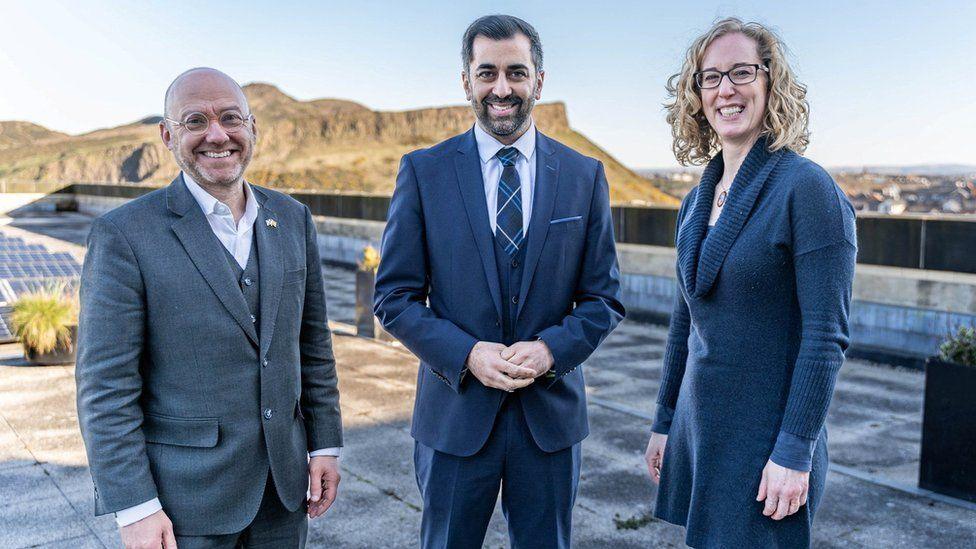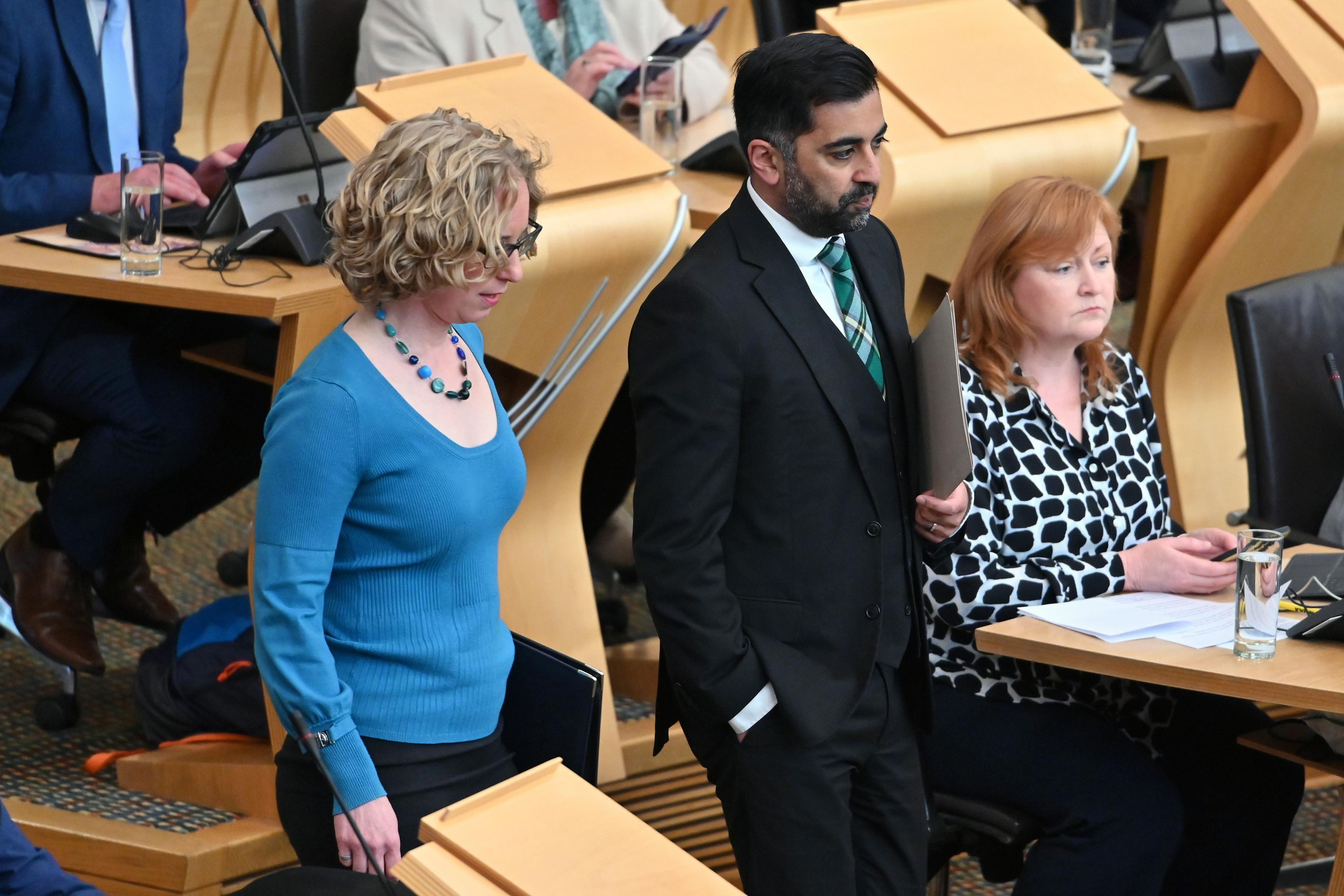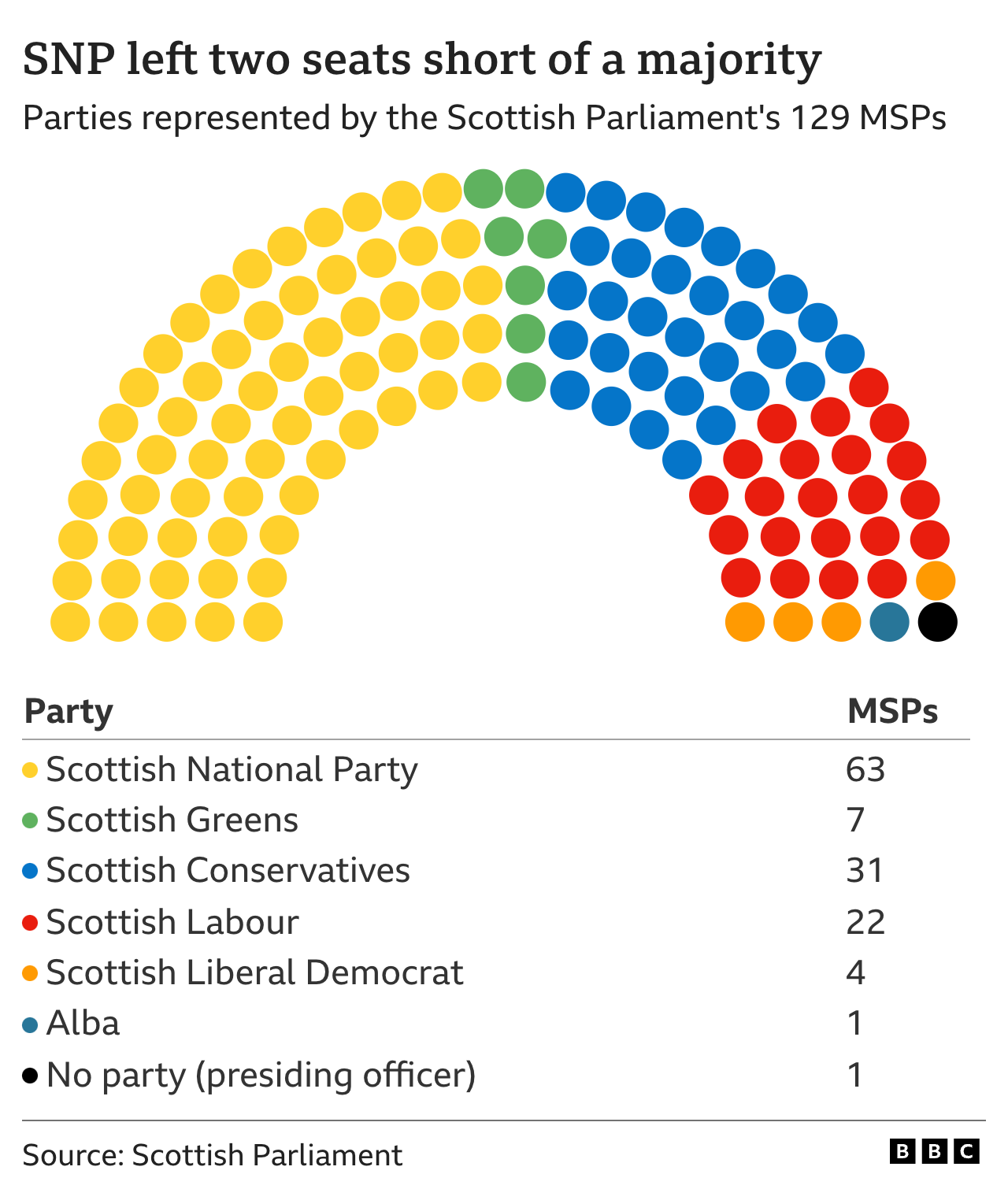Ditching the Greens is a defining moment for Humza Yousaf

Humza Yousaf said just days ago that he valued having the Scottish Greens in government
- Published
The ending of the power-sharing agreement with the Greens is a defining moment in Humza Yousaf’s leadership of the SNP and the Scottish government.
The self-styled continuity candidate when he replaced Nicola Sturgeon a year ago has already dispensed with some parts of her agenda.
He has now torn up one of the most significant elements of her legacy - the Bute House Agreement.
The deal which brought Green ministers into government for the first time anywhere in the UK was designed to last until the next Scottish Parliament election in 2026 but has been scrapped within three years.
The tensions between the parties were obvious and increasing, not least following the recent decision to drop some key climate change targets.
The decision to pause access to puberty blockers for under-18s was another source of anger among some Greens.
The Greens were actually proposing to let their party membership decide whether or not to remain in government.
Humza Yousaf has got in there first - ditching the Greens rather than allowing them the chance to ditch the SNP.
The first minister may want to present this as decisive leadership but only a few days ago he stressed how he “really valued” having the Greens in government.

He has been under significant internal party pressure to change position and appears to have succumbed to that.
The decision to drop the Greens will delight some senior figures in the SNP who believe the partnership has been harming the party’s electoral prospects, not least in rural Scotland and the oil and gas producing north east.
The decision means the SNP no longer has a majority in parliament and will need to persuade rival parties - vote by vote - to support them if they are to get law making business done.
It will now be much harder to persuade the Greens to help them out.
That relationship has been poisoned with the Greens accusing the SNP of “political cowardice” and “selling out future generations”.
Fortunately for the Scottish government, the Scottish budget for 2024/25 has already been approved.
'New strategies required'
In a UK general election year, it may prove difficult for the SNP to find alternative partners to win votes on anything even slightly controversial.
If there was a confidence vote in a government minister for instance, the combined forces of opposition at Holyrood - now including the Greens - could beat the SNP.
That’s one reason some in the SNP may be sorry to see the Greens go.
Their power-sharing deal was about creating stability for the SNP and achieving greater influence and credibility for the Greens.
There was a potential longer term project too.
Some imagined an official or unofficial pact between the parties at the next Holyrood election, with the SNP targeting constituencies and the Greens focusing on the top up lists.
That strategy would have aimed to keep both parties in power and maintain an independence supporting majority in the Scottish Parliament.
New strategies will now be required for both parties - and that may involve some change in the leadership of the Scottish Greens sooner rather than later.
It does not necessarily secure Humza Yousaf’s position at a time where the SNP have been sliding in the opinion polls and Labour are experiencing a revival.
My expectation has been that Mr Yousaf would lead his party into the next general election and his position after that be determined by the extent of any losses.
More immediate doubt has been cast on his political survival with the Conservatives proposing a confidence vote in the first minister at Holyrood.
The SNP government is in no position to guarantee that Mr Yousaf will win that vote, which is likely to be held next week.
If all opposition MSPs join forces against the first minister, he will lose.

Strictly speaking, that vote is not binding but politically he would more or less be obliged to resign.
Parliament would then have 28 days to agree a successor and if not an early election would be called.
So how could Mr Yousaf avoid this scenario?
If the Greens cool down over the next week and choose to abstain rather than voting against him - or if any one opposition MSP could be persuaded to switch sides.
The SNP have 63 MSPs. Their opponents have 65. One switcher to the government could result in a tie in which the presiding officer (equivalent of the Commons speaker) would be expected to back no change.
The Alba MSP Ash Regan is expected to write to the first minister offering terms for her backing.
Without her vote or at least a couple of MSPs abstaining or sitting on their hands, Humza Yousaf’s political survival would be in serious doubt.